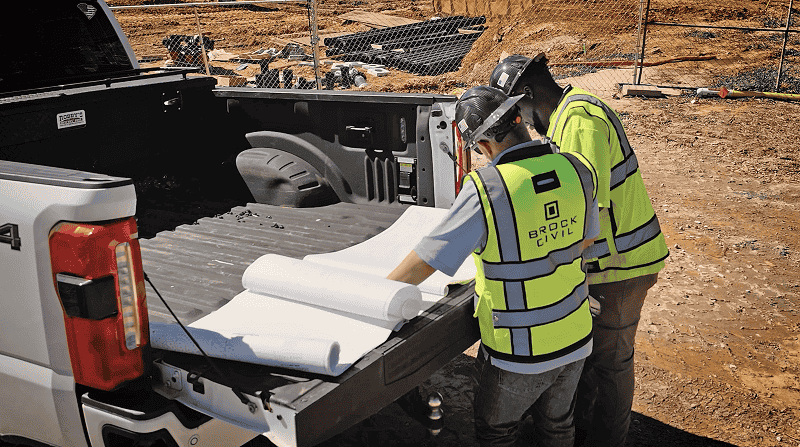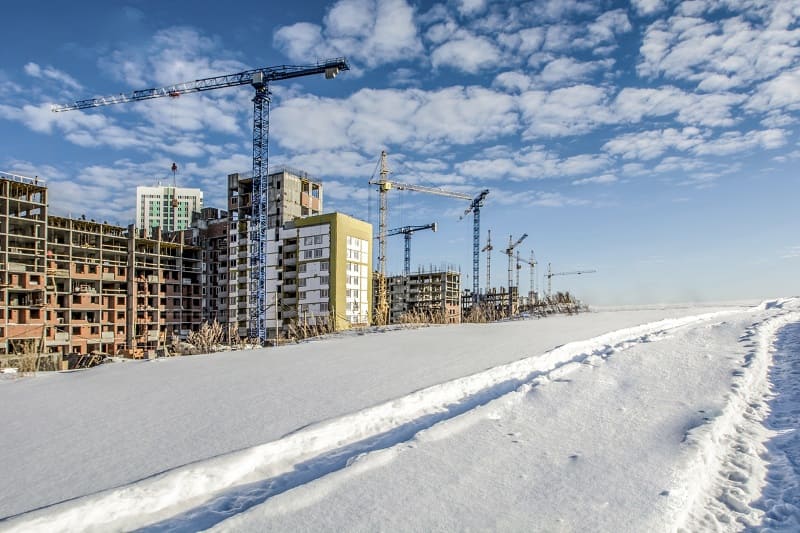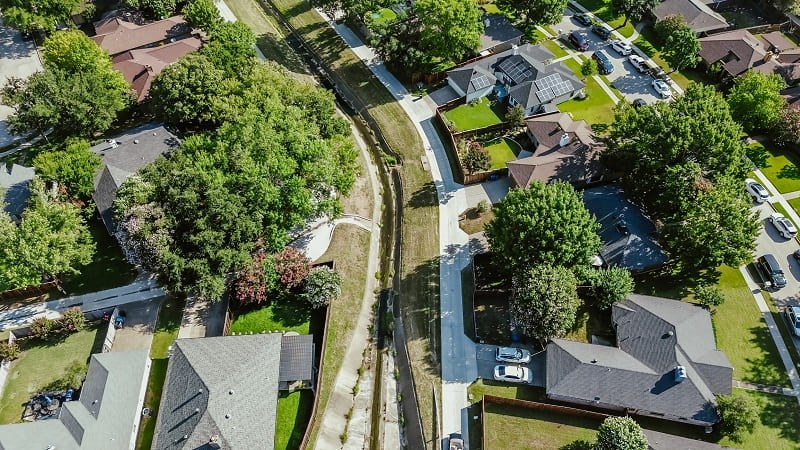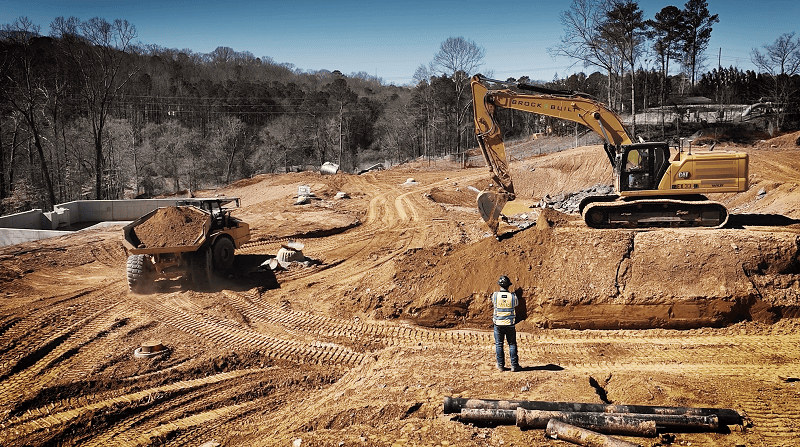When most people think of a construction jobsite, they often think of the final product: the road that gets built, the sewer system, a building, or an infrastructure project. However, the sitework construction is a critical component of any job, ensuring that everything is ready for construction to proceed. Sitework construction refers to all of the preliminary work that is completed ahead of the job, which can include anything and everything from excavation and drainage to utility work.
Sitework construction is incredibly important because any issues with the construction site can delay, impede, or even prevent construction from continuing. It can also cause major headaches down the line. Consider if drainage was never considered before a road is built — the result is that it could be under water constantly, and that standing water could degrade the foundation of the road. Bottom line: sitework construction is essential for long-term success.
Who Needs Sitework Construction Plans?
Sitework construction plans are necessary for nearly every type of construction to ensure that the job proceeds smoothly and without expensive issues that can blow the budget and disrupt the schedule. Sitework construction needs to be conducted at every type of residential, commercial, or industrial construction job site.
Even if very little sitework construction needs to be completed to prepare the site for the job, a site assessment and proper planning still must be conducted to ensure there are no issues. For example, if a municipality plans to update a road, soil boring and road core samples are necessary to understand the foundation and prevent costly surprises later. This way, engineers can determine what work needs to be done, plan for all possible scenarios, and ensure the project is completed within a set timeline and a specified budget.
Site Assessment and Planning

Before construction work can be planned, the construction site must be assessed to identify and prepare for any potential challenges that may arise, ensuring the project’s construction can be completed safely and in compliance with environmental and zoning laws.
Once a site is assessed, a sitework construction plan needs to be developed to determine the necessary actions, including surveying and soil testing, identifying required permits, and any other preparatory work. By conducting adequate site assessments and planning, the construction team will ensure that the project stays within budget and on schedule, and, of course, remains compliant with all relevant environmental and safety regulations.
Clearing and Excavation
Sitework construction often includes clearing and excavation, which will help establish proper drainage, as well as support for the foundation of the project, whether it is roadwork, a building, or another structure. Clearing and excavation will involve the demolition of existing structures, including the removal of debris and vegetation, and completing dirtwork to establish a level surface.
Utility Installation
Utility work is also an essential component of sitework construction. Utility work could involve anything from electric to sewer, gas, and/or electrical lines. Depending on the site, the type of construction, and plans for utilities, it may be necessary to relocate existing utilities, lay the groundwork for new lines, or even remove some altogether, especially if they are obsolete or no longer in use. This will require coordination with the utility companies and involve inspections; therefore, it should be included in the sitework construction plan.
Erosion and Sediment Control
Before starting construction, every site plan will need erosion and sediment control as part of its sitework construction. Most of the time, people will see this as a silt fence, which helps prevent runoff and soil sediment from polluting lakes, creeks, and other waterways through stormwater runoff. Other standard methods of erosion and sediment control include erosion control blankets, construction entrance stabilization, and even berms or trenches. Construction managers should always consult local regulations to ensure compliance.
Foundation Preparation
Another essential part of proper sitework construction includes foundation preparation. Without a solid foundation, roads, structures, and other infrastructure projects may face major structural issues down the line, even if they are not readily apparent at the start of construction. First, the soil composition needs to be evaluated, and the topsoil needs to be stripped. From there, traditional soil preparation can be completed. Foundation preparation involves leveling and compacting the soil, installing a subbase or foundation, and adding any necessary structural framework.
Access Roads and Temporary Facilities

In many instances, adequate access roads are not available for heavy-duty construction equipment. As such, sitework construction must include the construction of temporary access roads and facilities as needed to support the equipment and allow workers to access the site safely. This can consist of creating temporary roads or installing construction mats, which not only prevent equipment from sinking into the ground but also protect the ground and eliminate rutting. Additionally, temporary utilities and sanitation facilities, such as portable bathrooms, are necessary to ensure workers can work safely.
Safety and Compliance
No sitework construction plan is complete without adhering to OSHA regulations and implementing safety best practices. Not only do no employees want to be injured on the job, but having a high number of accidents can also negatively impact a construction company’s business and reputation.
While companies may not be able to achieve zero accidents, striving to minimize them by implementing every safety precaution is a best practice. This includes regular inspections and documenting conditions, as well as any accidents that may occur, to ensure compliance with OSHA regulations. Ensure that whoever handles sitework construction prioritizes safety.
Prep Your Construction Site Right With Sitework Construction Essentials
When the proper sitework construction is completed, the whole project will run more effectively, with smoother construction and long-term success. If you have a project and don’t have the time or the staff to create a preconstruction sitework plan, count on the team with the experience, know-how, and reputation for success to handle it for you. Contact Brock Civil today for a quote.




